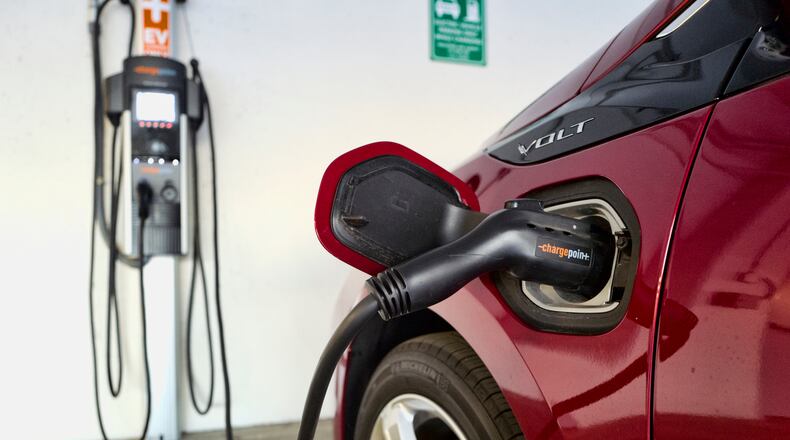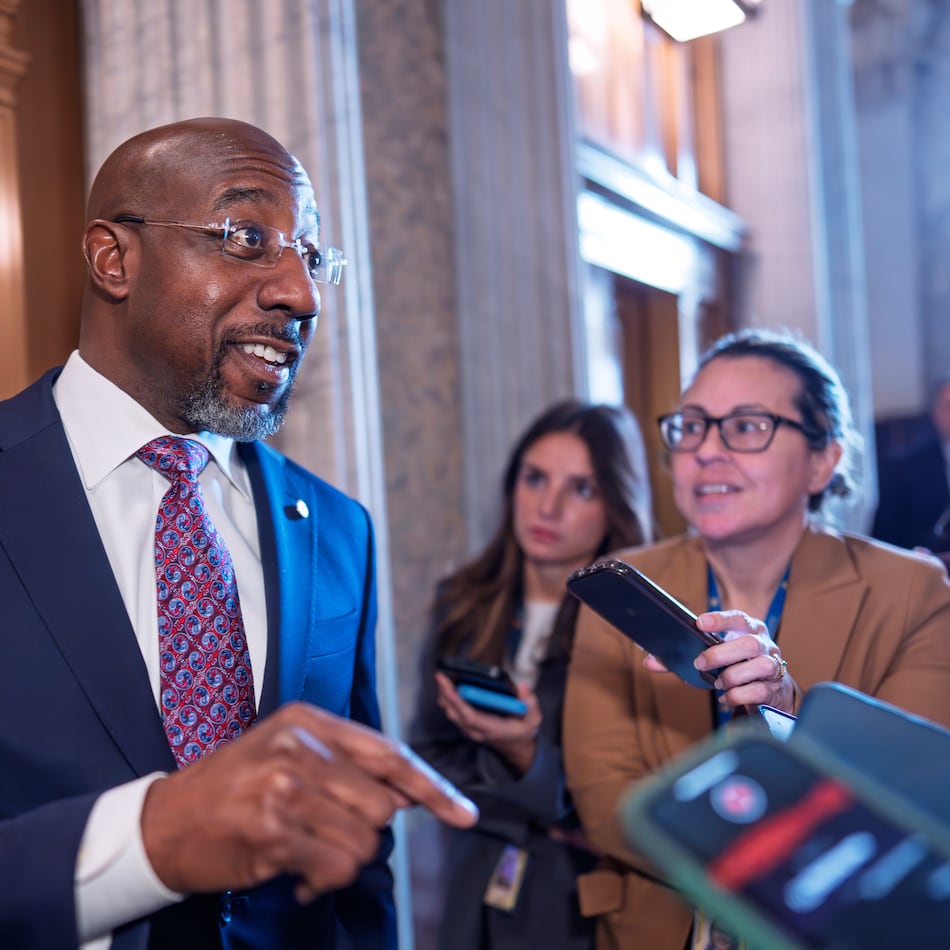Last month, Public Utilities Fortnightly – a riveting national publication if ever there was one – dipped ever so slightly into Georgia history.
The magazine featured a piece by Tim Echols, a Republican member of the state Public Service Commission. He pointed to the debate in Washington over whether the current $7,500 tax credit on electric vehicle purchases should be expanded or eliminated.
Echols warned Congress not to make the same mistake that our GOP-controlled Legislature did in 2015. State lawmakers erased the state’s $5,000 tax credit on electric vehicle purchases and hit buyers with a tax instead.
“The move led to a nearly 90% drop in new electric car registrations and cost Georgia income, jobs and cleaner air,” Echols wrote.
Several years ago, Echols successfully teamed with fellow PSC member Lauren “Bubba” McDonald to persuade Georgia Power, and fellow Republicans, to take solar power seriously. Echols is now on another crusade — to revive the electric vehicle market in Georgia.
On Tuesday, the state Public Service Commission approved a Georgia Power rate increase that could begin increasing residential bills as early as next month. One of the overlooked aspects of the package was a requirement that Georgia Power spend $8 million a year, over three years – on new charging stations for vehicles, and for infrastructure to provide the current.
Inclusion of the provision wasn’t fought by the utility. “They’re not dragging their feet on this like they did on solar,” Echols said in an interview.
No, the people Echols needs to persuade are his fellow Republicans, particularly those in the state Capitol. In fact, remember that November reference he made to the “cleaner air” that comes with electric vehicles? You may not see it again.
“We’ve talked about the environment. We talk about climate change and how [the cars] help with pollution. We haven’t gone after the economics. I think the messaging needs to change on this,” Echols said.
And the messenger needs to be a Republican.
Here’s the pitch Echols is making: On a per-person basis, residential customers are using much less electricity than they once did. “Because people are getting more efficient things, like LED bulbs. They use 90% less power,” he said. Then there are smart thermostats, and better-insulated homes.
Bottom line: The per-household demand for electricity is dropping, but the cost for generating that power remains static.
Credit: Henry P. Taylor
Credit: Henry P. Taylor
“The only thing that’s causing any kind of personal growth out there, in terms of appliances or home power is electric cars. Electric cars use a fair amount of power when you’re charging at home. And most people do charge at home,” said Echols, who is on his fourth electric vehicle, a Chevy Volt.
Echols pointed to Cobb EMC, which has a program that allows consumers “free” electricity from 12 to 6 a.m. “They’re doing it to get electric vehicles,” he said. “You program your car to start charging at midnight.”
An emphasis on electric vehicles also strengthens the justification for Republican support of the continued construction of those two new nuclear reactors at Plant Vogtle in east Georgia, Echols said – despite those busted deadlines and cost overruns.
Like it or not, the PSC commissioner said, Washington is ultimately likely to levy some sort of carbon tax to discourage the use of fossil fuels. A friendly local environment for electric vehicles would ease any economic discomfort that transition creates.
But Echols isn’t just in a defensive posture. He heads up an electric vehicle “brain trust” that gathers once a month – to share new information and chart out the future course of EVs in Georgia. That future includes autonomous vehicles. A Mercedes Benz representative was there for Monday’s meeting. So was one from Porsche, too. And the Southern Co., parent company of Georgia power.
The “brain trust” meets on the premises of Cox Automotive property on Metropolitan Avenue in south Atlanta. (Cox Automotive is a division of Cox Enterprises, which also owns The Atlanta Journal-Constitution.)
Echols would like to see the area – located between downtown Atlanta and Hartsfield-Jackson International Airport – become a center for electric vehicle development.
Echols has suggested to Mayor Keisha Lance Bottoms that the main thoroughfare, once known as Stewart Avenue, be renamed once again – this time as “Electric Avenue.”
Another member of the EV study group is state Rep. Todd Jones, R-Cumming. He is the author of House Bill 732, introduced last year, which would claw back $2,500 of the $5,000 tax credit for electric vehicles that was erased four years ago.
The measure would also offer a $500 tax credit for homeowners who install vehicle chargers. Introduced last April, the bill has yet to get a hearing.
Given that Gov. Brian Kemp, anticipating hard months ahead, has ordered two years’ worth of budget cuts, Echols said that the time may not be ripe to push for more tax credits that would eat into state revenue.
Nonetheless, Echols will be one of the participants in a two-day policy forum on the future of electric transportation held on the Georgia Tech campus in January, just as state lawmakers gather for the 2020 session. Vehicles will be available for test drives.
Forty-eight different models of vehicles sold in the U.S. use plugs. Within 20 years, it’s predicted half of all vehicles will be electric. The situation reminded Echols of the 2013 fight over solar energy.
“There were a lot of angry Republicans over that thing. They thought we had gone over to the dark side,” Echols said. “But eventually, as those solar farms wound up in poor counties across south Georgia, raising their tax digest, letting them get ambulances and libraries and softball fields, Republicans eventually said – you know, this is a good thing.”
It could happen again. But it will take work, even in Washington. In a budget compromise reached this week, Congress didn’t scrap the federal tax credit on electric vehicles outright, as the White House had threatened.
But they didn't expand the 200,000 vehicle-per-carmaker cap, which Tesla and General Motors have already exceeded. Other companies will quickly do the same — which means the federal tax credit will soon be no more.
About the Author
The Latest
Featured





